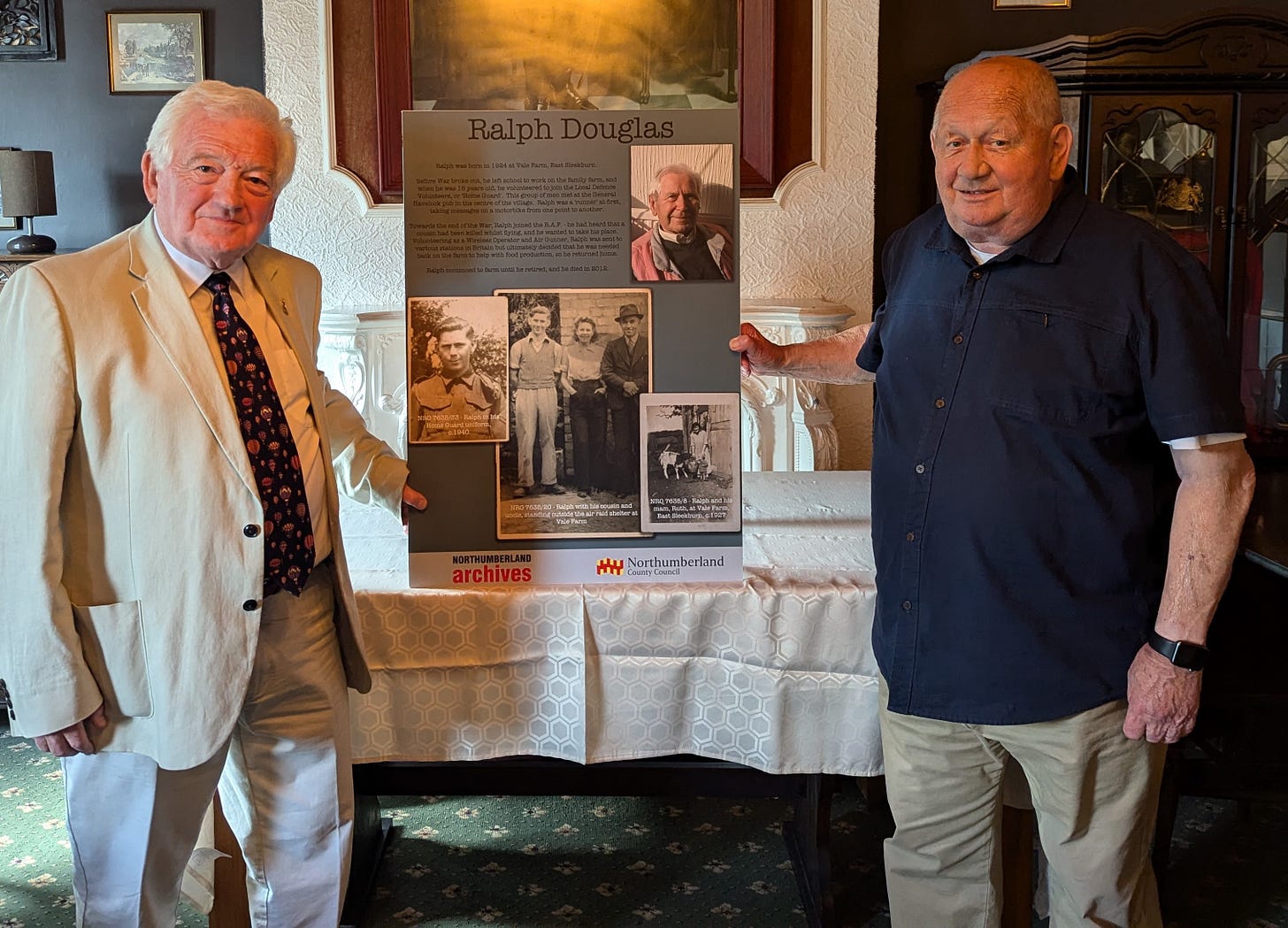Pub makes display of WWII serviceman
A mini-exhibition in a village pub will be a permanent reminder of a local farmer’s wartime life. Tony Henderson reports.
The life of a man who left the family farm to fight in the Second World War will be remembered by a display at his village pub.
A board dedicated to Ralph Douglas has been installed in the General Havelock pub in East Sleekburn, Northumberland, which also played a pivotal role as a community hub during the war.
Ralph was born in 1924 at Vale Farm, East Sleekburn. At 16, he volunteered for the Local Defence Volunteers, later the Home Guard, carrying messages on a motorbike.
After his cousin was killed in the war, he joined the RAF as a wireless operator and air gunner.
He later returned to the farm to help with food production – another essential service. He continued farming until his retirement and died in 2012.
Councillor Jeff Watson, Northumberland County Council Cabinet Member for Culture, Heritage and Libraries said: “Ralph embodied the resilience and patriotism that characterised so many servicemen and women.
“The Story of Ralph Douglas and the General Havelock Pub is a testament to the strength of Northumberland's spirit, and now, thanks to this memorial board, created by Northumberland County Council’s Archives, Ralph’s service can long remain a talking point for pub goers.”
Sleekburn ward County Councillor Alex Wallace, said: “One of the significant contributions of the General Havelock Pub was its involvement in the ‘War Savings’ campaigns. These initiatives encouraged local people to contribute to the war effort by buying war bonds and stamps helping to fund military operations.
“The pub also served as a venue for events aimed at raising funds for the Red Cross and other charities supporting soldiers and the victims of war.
“I saw the board in an exhibition at County Hall and asked for it to be offered to the pub landlord Ed Richardson. He was delighted to have in in memory of a local hero and now it takes pride of place.”
The pub was one of a number named after the Major-General Sir Henry Havelock, who played a key part in the relief during the Indian Mutiny of 1857 of the siege of Lucknow which lasted for a total of 148 days.
Henry Havelock was born at Ford Hall in Sunderland, the son of William Havelock, a wealthy shipbuilder.
His statues stand in Trafalgar Square in London and Mowbray Park in Sunderland.


